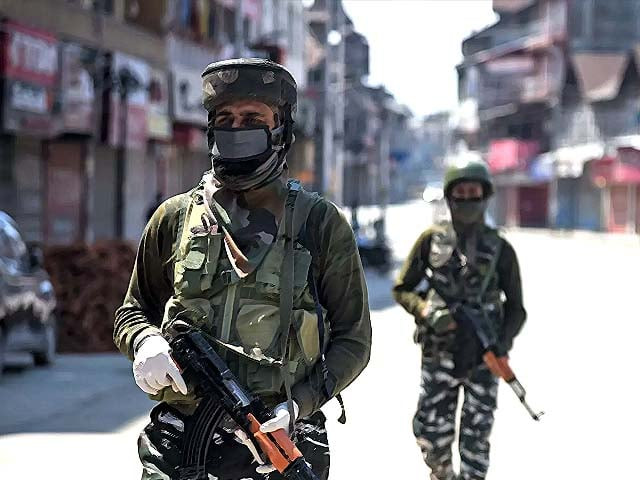“Who has not heard of the Vale of Cashmere, with its roses the brightest the earth ever gave. Its temples and grottos and fountains as clear as the love-lighted eyes that hang over their wave.”
The fame of Kashmir has spread far beyond the lofty Himalayan peaks. Yet, despite all the admiration the region has received, it seems that the people of Jammu and Kashmir have always been disdained. With each passing year, people are losing their fundamental rights in Kashmir while the world turns a blind eye towards them, despite repeated complaints of human rights violations taking place within the territory.
Nine months ago India revoked Kashmir’s special status. For nearly three decades, the representatives of the Bhartiya Janta Party (BJP) had been promising that they would rescind the constitution of Jammu and Kashmir once elected to power. The BJP members had long been travelling to Kashmir with this agenda, calling Kashmir an integral part of India.
As soon as Narendra Modi started campaigning for his second tenure, the Hindutva forces backed by the Rashtriya Swayamsevak Sangh (RSS) raised questions about the fulfillment of several previously made promises. Among them, the abrogation of Article 370 and the construction of Ram Mandir on the site of Babri Masjid were right at the top of the list. Soon after he had been elected as prime minister for a second tenure after an impressive victory in the parliamentary elections, Modi had the constitutionally granted special status of Jammu and Kashmir (granted under Article 370 and Article 35A) scrapped. Later, the promise to construct Ram Mandir was also made possible through a Supreme Court judgment.
After the abrogation of Article 370, there had been speculation among the people of Kashmir that the BJP would soon introduce new laws that will change the demography of Kashmir. It certainly seems like that was the purpose of rescinding Article 370 and reducing the state into a union territory. Under the Indian constitution, union territories are directly controlled by the central government.
After the BJP ended its alliance with the Peoples Democratic Party (PDP), several regional parties decided to form a mutual government in Kashmir. However, this failed to materialise due to a “faulty fax machine”. The purpose behind ending the coalition was to throw the state assembly into a state of chaos, hence granting central authority to the representatives chosen by the government (the governor) and to pass a bill in parliament without resistance from the state assembly. As a result, the Jammu and Kashmir Reorganisation Bill, 2019 divided the region into two union territories: Jammu and Kashmir, and Ladakh. This meant that Jammu and Kashmir would no longer have the privilege of resisting laws mandated by the centre. The validity of this step and the abrogation of Article 370 has been challenged in the Supreme Court. So far, it has yielded no results. Hence, Jammu and Kashmir is now a union territory; with all its power-sharing buttons controlled by the central authority.
Ever since BJP came to power, India has gained notoriety across the world for its harsh treatment of Muslims, especially in the conflict ridden Jammu and Kashmir. After the advent of the BJP government, the valley of Kashmir began witnessing an unprecedented rise in violence and protests. In response, the BJP gave full powers to the forces to use short-range pellet guns, blinding thousands of civilians, and to launch heavy military operations to hamper the separatist movement. Additionally, BJP has shown no willingness to solve the long-standing conflict between India, Pakistan and China. It’s pertinent to mention here that Atal Bihari Vajpayee, the former prime minister of India, tried to initiate dialogue to solve the dispute. But BJP, backed by Hindutva forces, has sidelined all the key players who wanted to see the conflict in Kashmir solved amicably.
Now, while the coronavirus outbreak has overwhelmed the world and dominated headlines, the Indian government has quietly amended 138 state laws that were protecting the indigenous identity of Kashmir, thus ensuring its colonial control over the territory. The newly introduced domicile law are perhaps the greatest evidence of just how the Indian state wishes to reshape the demography of the region. The law has overridden the erstwhile 1954 law, which empowered the state government to define the “permanent residents of Jammu and Kashmir”, and to determine who had rights over jobs, property and land. Under this new domicile law,
“Those who have resided for a period of 15 years in Indian-administered Kashmir or studied for a period of seven years and appeared in Class 10/12 examinations in educational institutions located in the region are now eligible to become permanent residents.”
On March 31st, when this law came into the spotlight, the supporters of BJP in the Jammu region felt betrayed since the officer level jobs available in the region were opened up for the whole of India, despite the unemployment crisis. This particular criticism came from many parties who have been allied with the BJP in orchestrating this scenario. This led to the Indian government revising the domicile rule and stating that government level jobs in Jammu and Kashmir will be “reserved for domicile residents irrespective of level and pay scale.” However, this comes across as a well-planned step by the BJP used to limit peoples’ immediate concerns to the employment procedure, especially given the high unemployment rate in the region
Till August, permanent residents were only those who had lived or owned land in Jammu and Kashmir for at least 10 years in 1954, and those who had been state subjects of Jammu and Kashmir in 1954 and their descendants. Furthermore, Article 370 was not only protecting the immovable property rights but was also securing job rights and some state scholarships.
As a result of the new docile law, any officer stationed here since the time of the insurgency in Kashmir in the 1990s can also claim his residential rights now. This will only strengthen military and police presence in the region. Also, since those who have studied in Kashmir for seven years and passed either their Class 10 or Class 12 examinations can become permanent residents, this means the families of these officers can now also claim this to be their domicile. It’s unfortunate that despite knowing the poor shape of Kashmir’s economy and the deep rooted unemployment crisis in the region, the BJP wishes to flood the region with more permanent residents. This will have disastrous ramifications on the economy, and will also further compound Kashmir’s climate change related issues. Part of the purpose of property restrictions in this region has been to save the snow-capped mountains and the green landscapes. However, if this new domicile law leads to a greater number of residents then it will cause an undue burden on all of Kashmir’s resources, which could upset its ecological balance.
In a sense, these laws demonstrate the hatred India harbours against the people of Kashmir. Hence, it looks like India is planning to implement an Israeli settlement model in Kashmir by changing its very demography. That way they can plan any referendum and ensure it swings in favour of the central government. Evidently, the aim of the domicile law is to flood the region with outsiders to help the Indian government achieve its goal of having this Muslim dominated region monitored and controlled.



COMMENTS
Comments are moderated and generally will be posted if they are on-topic and not abusive.
For more information, please see our Comments FAQ